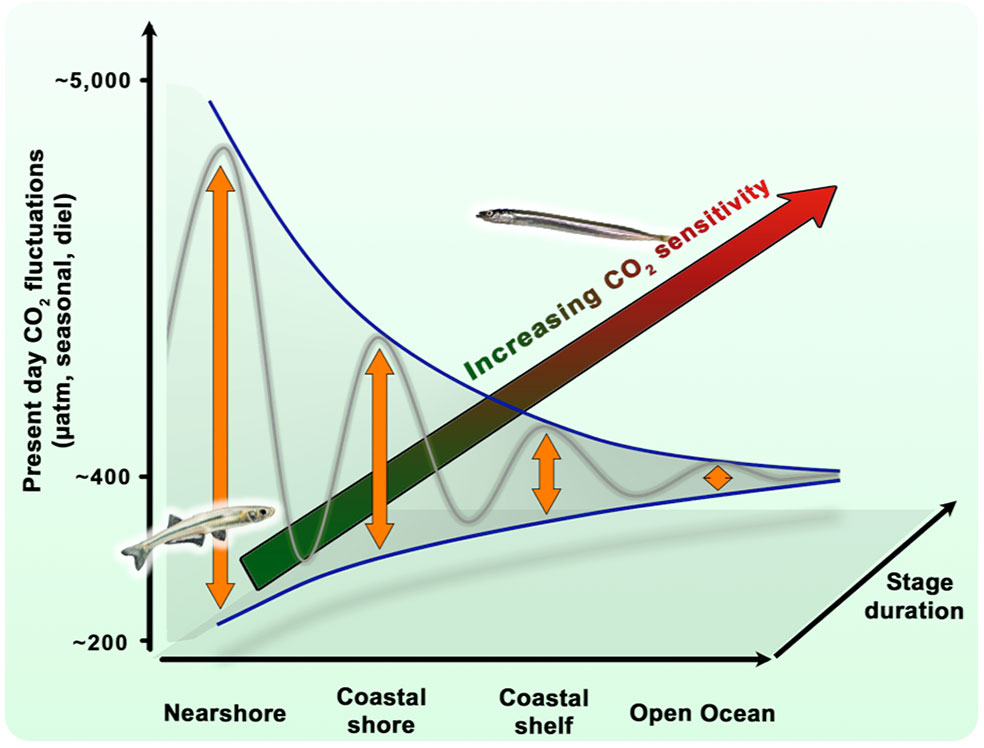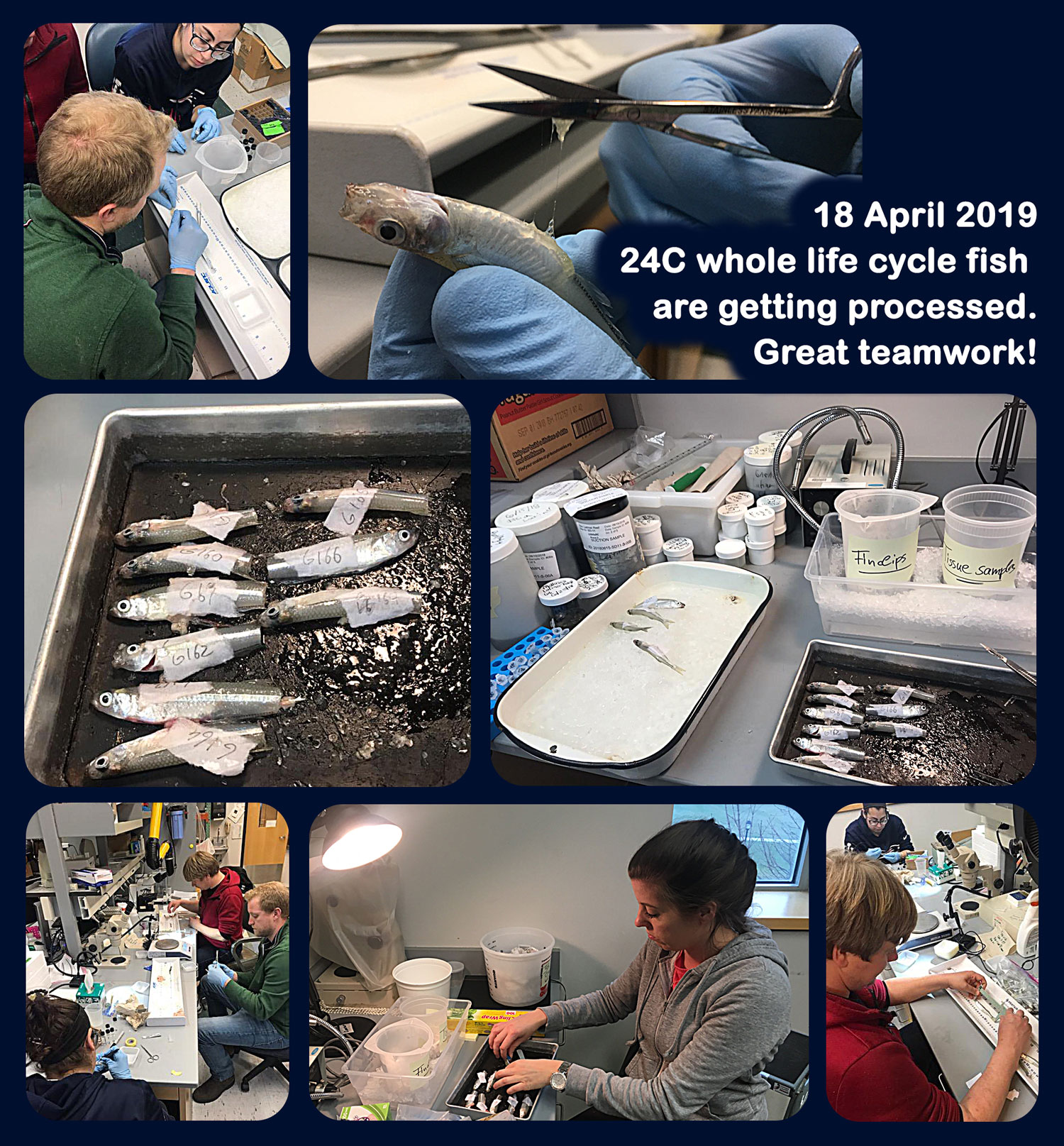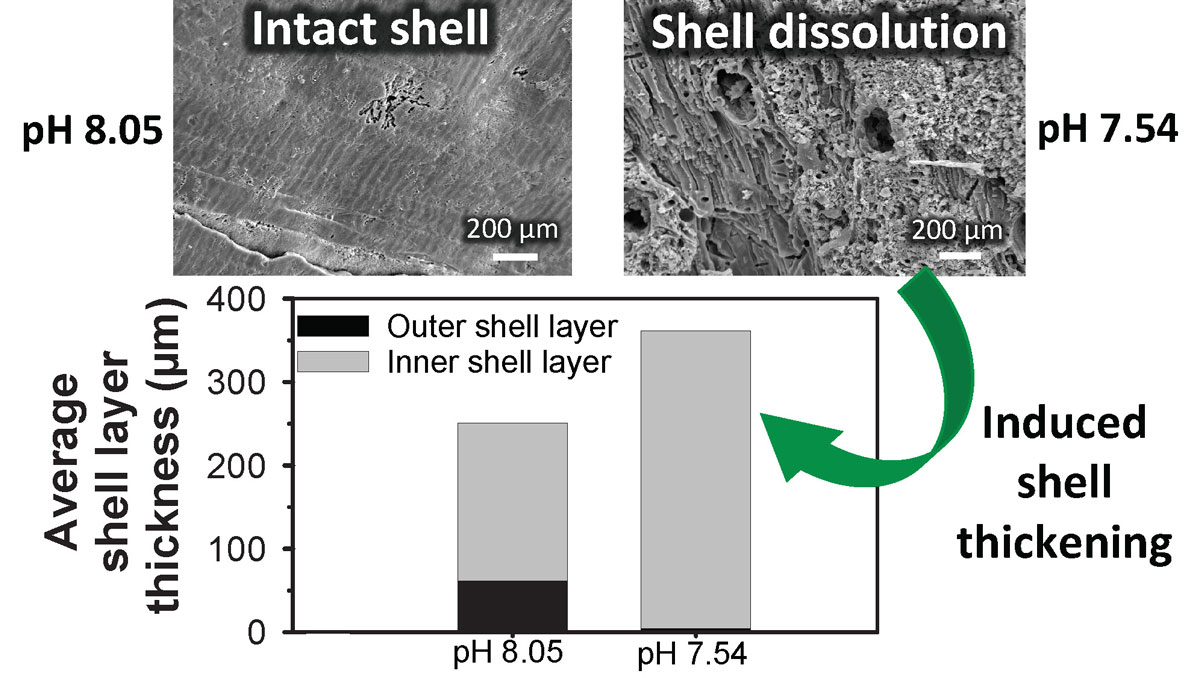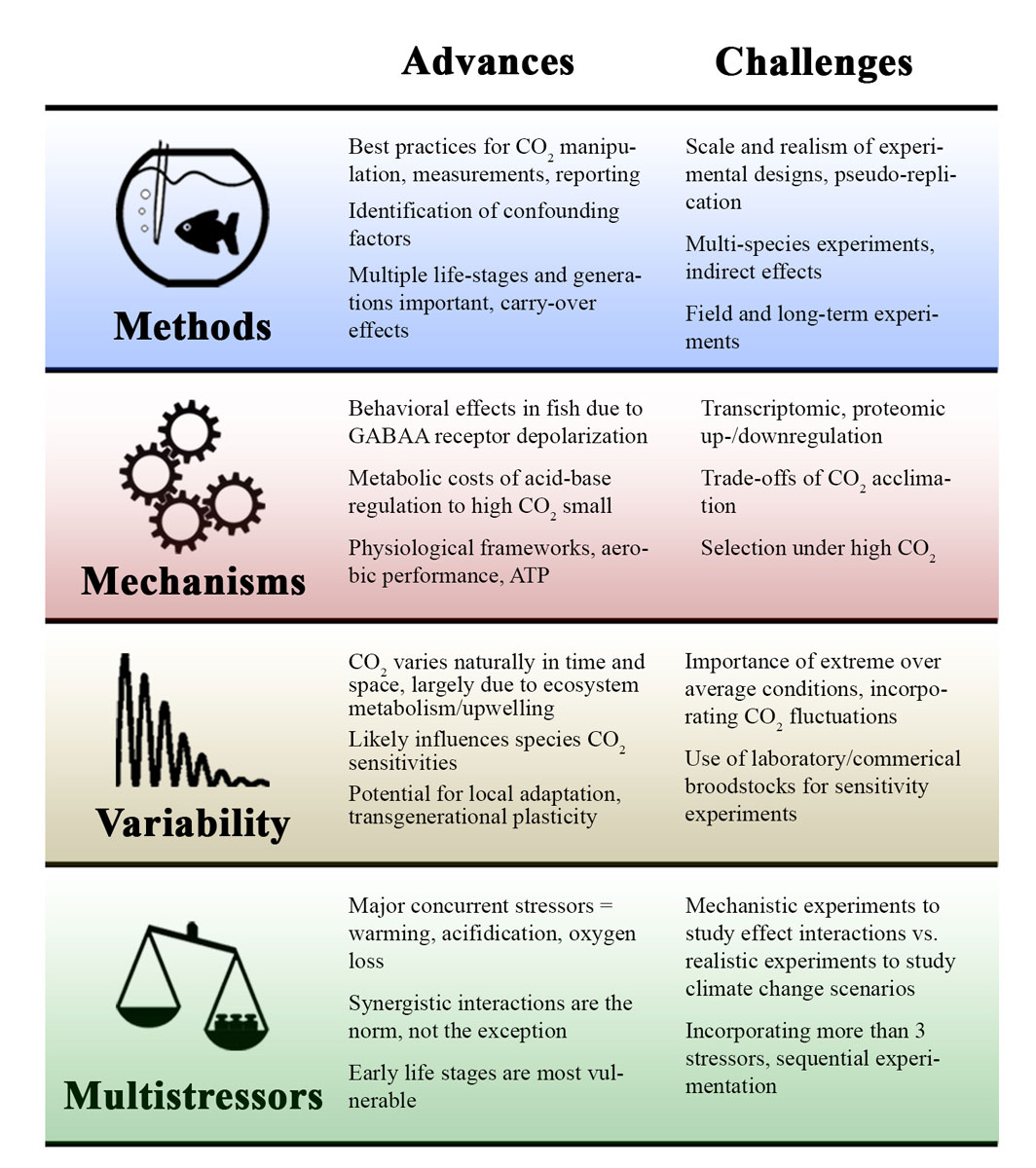18 April 2019. This Thursday was a long day in the Baumann lab, because we sampled and processed over 200 adult silversides from a unique experiment. These fish were fertilized in the lab and reared from eggs to adulthood under different temperatures and contrasting CO2 conditions. We are interested to see, if future ocean conditions have measurable effects on this species fecundity, growth, and oocyte characteristics. We also took tissue and genetic samples, with an effective line-up of hands, i.e., Hannes, Emma, Chris, Callie and Lucas.
Good teamwork all!
Month: April 2019
[Publication] Brachiopods thicken shells to compensate for shell dissolution under future OA conditions
15 April 2019. Today, Emma is happy to report that Environmental Science & Technology have just published the latest paper from her PhD about brachiopod resilience to future ocean acidification. This project involved long-term culturing of a polar and a temperate brachiopod under future ocean acidification and warming conditions. Substantial shell dissolution posed a threat to both species under ocean acidification, with more extensive dissolution occurring in the polar species.
Unexpectedly, we discovered that brachiopods thicken their shell from the inner shell surface when extensive dissolution occurs at the outer shell surface under ocean acidification. This is an important finding to further our understanding of how predicted vulnerable marine calcifiers might cope under future environmental change.
Cross, E. L., Harper, E. M. and Peck, L. S. 2019. Thicker shells compensate extensive dissolution in brachiopods under future ocean acidification. Environmental Science & Technology (published online March 29, 2019).
[Publication] Perspective on experimental OA research published!

- Baumann, H. (2019)
Experimental assessments of marine species sensitivities to ocean acidification and its co-stressors: how far have we come?
Canadian Journal of Zoology 97:399-408
[Media] WSHU public radio covers Project Oceanology story
Have a listen, how Hannes describes both the findings and the significance of the Project Oceanology time series.




